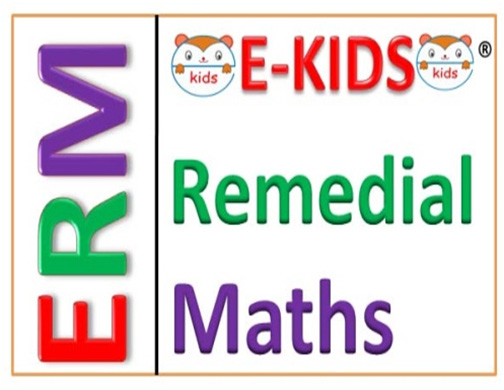E-kids Remedial Mathematics

A solution to Dyscalculia and a Differently Abled Mathematics programme to get rid of Maths phobia.
Current Scenario
Students with dyscalculia (Differently Abled Mathematics Learners) have difficulty in understanding numbers and learning math skills. Dyscalculia encompasses a wide range of learning disabilities related to Math.Students with dyscalculia may:
- have difficulty in learning to count or have a poor memory for numbers
- have trouble in writing numbers, finding correct place values, and lining up equations
- have trouble in remembering math facts
- be unable to follow a sequence of steps
- have difficulty in understanding numbers, math symbols, and word problems
- find it hard to visualize patterns
- have difficulty in measuring things
- have an extremely slow and difficult time solving math problems
- avoid games that require strategies involving math
- become extremely frustrated or anxious with schoolwork related to math
What Teachers Can Do
If you suspect that a student has dyscalculia, recommend in seeking an educational evaluation to a parent or guardian, an administrator, or a school counsellor.
Teachers can help students struggling with dyscalculia to make them aware of their strengths and weaknesses. Helping students to understand their learning styles and using alternative approaches can enable them to achieve confidence and success in math.
Additional math support in school and tutors outside the classroom, can help students with dyscalculia focus on specific learning difficulties. Reinforcing math facts and practising new skills can help them understand the math concepts easier.
Other strategies to be followed inside and outside the classroom include:
- giving extra time to work on math-related assignments
- using graph paper for students who have difficulty in organizing the problems on paper
- planning and organizing students’ approach to math problems
- using estimationto approach solving math problems
- using objects and visuals to help solve problems
- starting with concrete examples before moving to harder, more abstract concepts
- explaining math concepts and terms clearly and encouraging the students to ask questions
- providing them a quiet place to work with minimal distractions
Innovation
E-Kids has developed E-KIDS REMEDIAL MATHS (ERM) which focuses the fundamental concepts using computer graphics and animation with challenging tests. These lessons are called digital lessons. In built E-Test / Quiz program is part of the digital lessons. Montessori concepts have been incorporated along with ICT.
A solution to Dyscalculiaor Differently Abled Mathematics from E-Kids
- Screening Profile Test
- Mathematics Base Profile Test
- Pre-Operational Skill Development
- Basic Operational Skill Development
- Error Analysis
- Developing Conceptual Base
- Language Component in Remedial Maths Teaching
- Mastery in learning and Instructional Techniques
